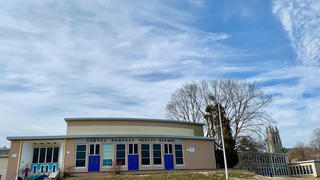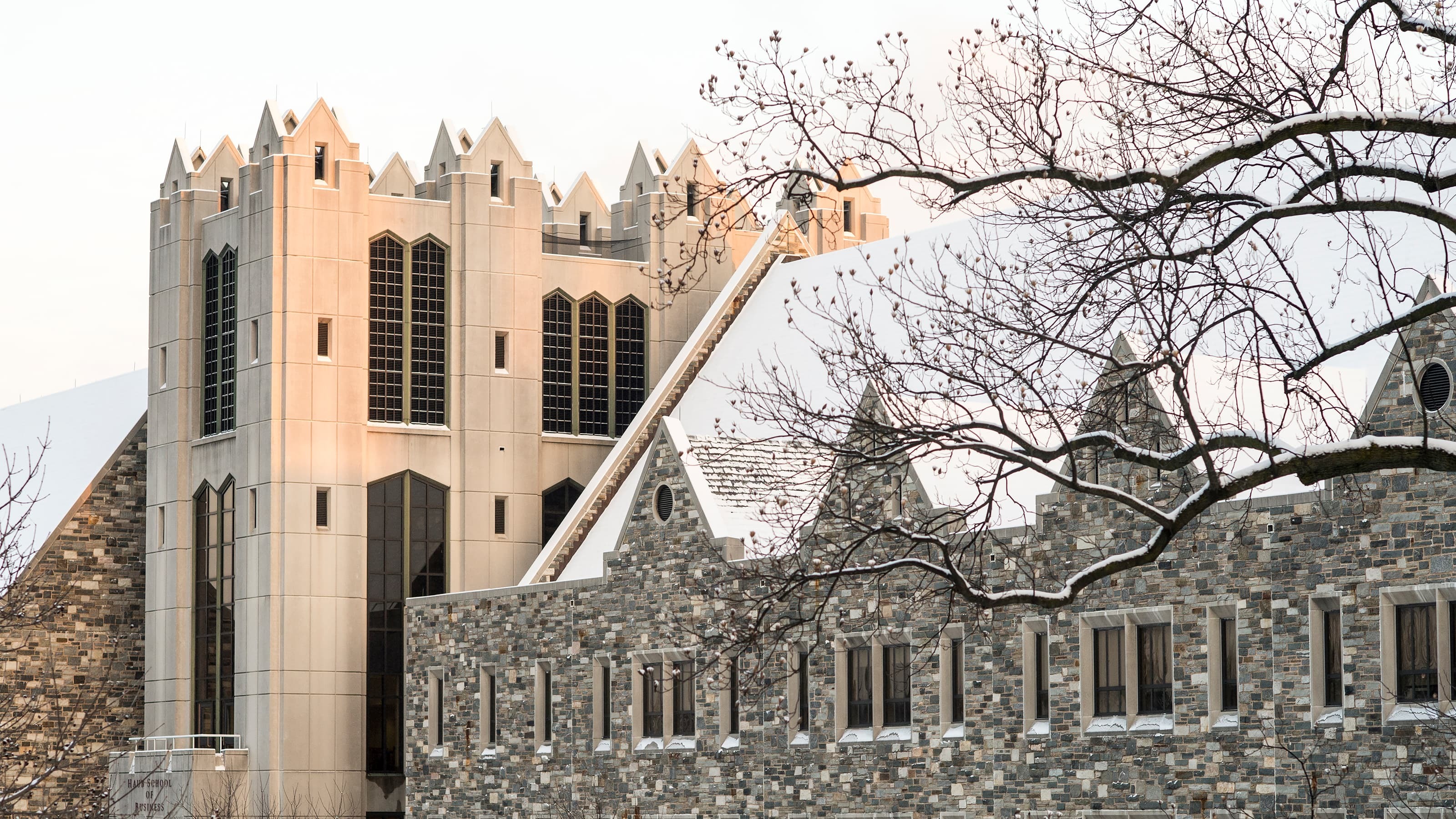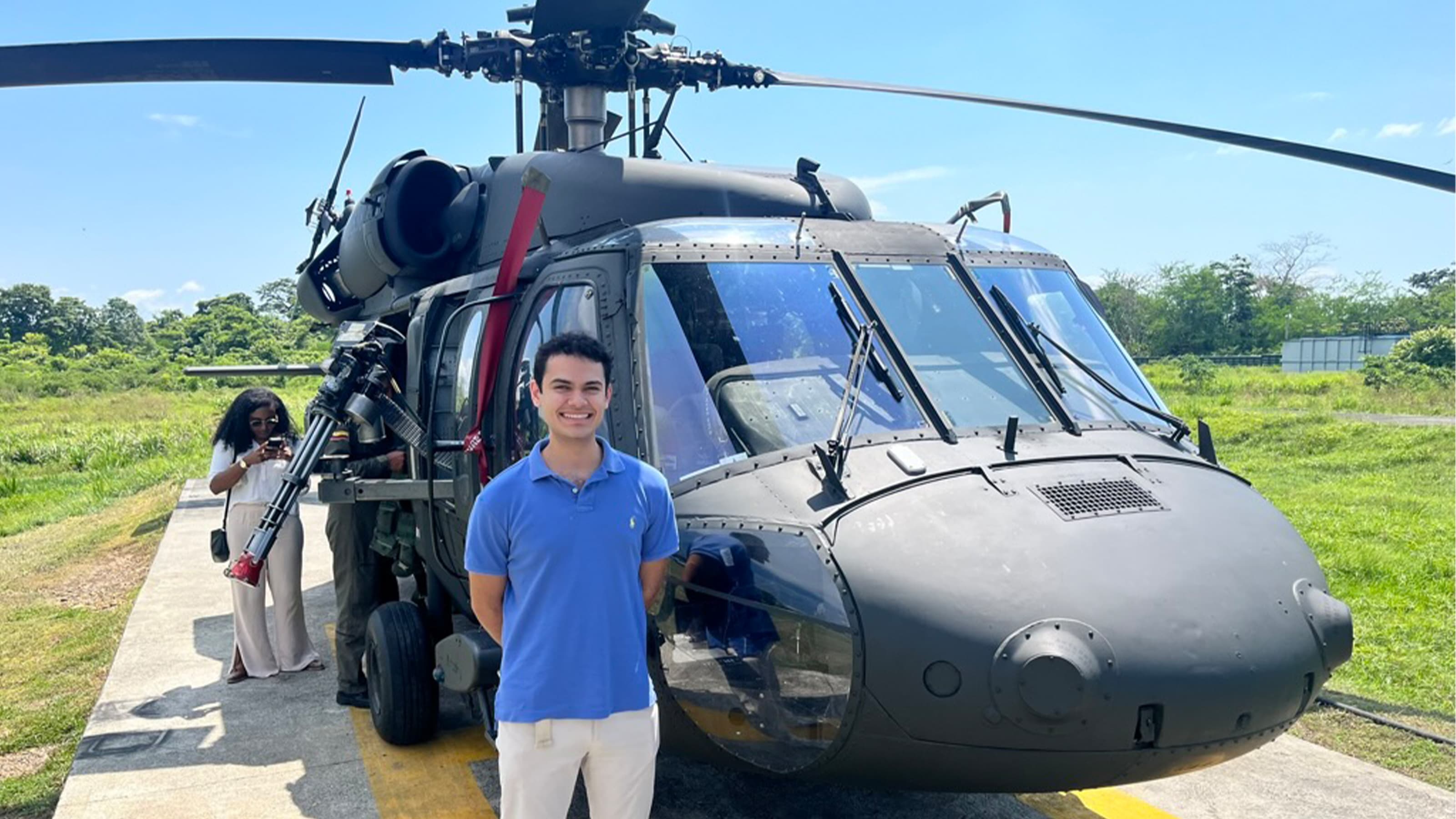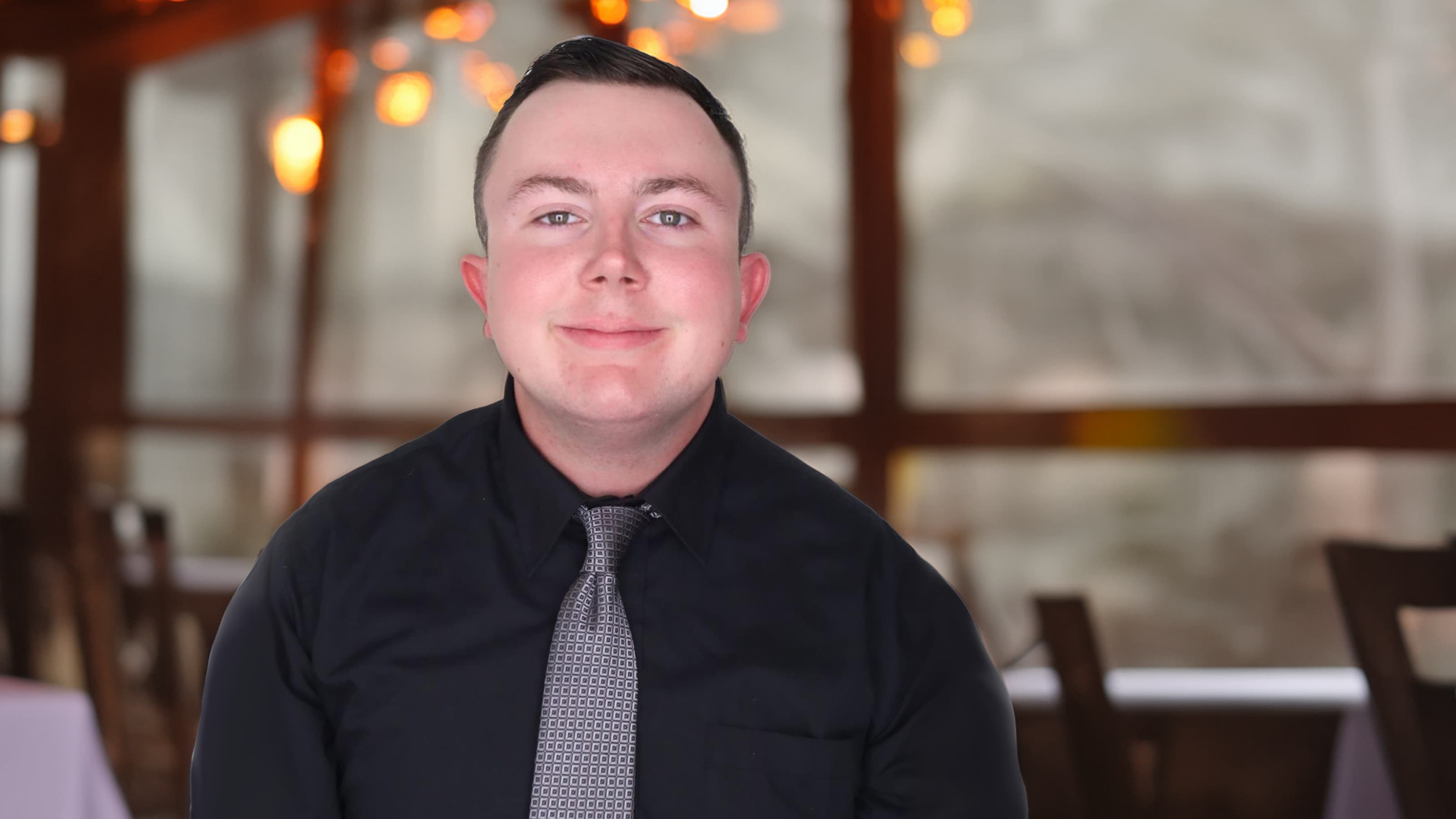New Partnership Embraces Holistic Approach to Education Through Community Outreach
Through a new collaboration, St. Joe’s interdisciplinary health studies majors put theory into practice developing health education lessons for Gompers Elementary students under the tutelage of Main Line Health medical school students.

Before Saint Joseph’s interdisciplinary health studies majors graduate this spring, they’ll put their years of education into practice in a capstone course that develops their leadership skills through community outreach. In the course, IHS 495: Seminar in Health Studies, seniors design lesson plans for elementary school children under the mentorship and guidance of fourth-year medical school students.
The pilot, which officially launched this spring, leverages a new partnership between Main Line Health, Samuel Gompers Elementary School and Saint Joseph’s University. The program will also soon include Together for West Philadelphia, a nonprofit organization that facilitates collaborations within the West Philadelphia community.
The goal of the program is twofold. First, St. Joe’s students demonstrate a mastery of the concepts they’ve learned in their interdisciplinary health studies courses, synthesizing themes from courses like The Healthcare System and Its Responsibility and The Psychosocial Aspects of Chronic Illness and Disability. They then take that knowledge and apply it to the real world — in this case, teaching fourth, fifth and sixth graders at Gompers Elementary the importance of health education — as they prepare for their professional careers and graduate studies.
“It's similar to a thesis course of a master’s program,” says Ajoa Abrokwa, MSc, visiting professor of interdisciplinary health studies at St. Joe’s, who helped develop the partnership together with Barry Mann, M.D., of Main Line Health, and Rennie Parker of Gompers. “We want students to be able to operationalize the concepts they’ve learned in the classroom and put them into practice.”
But the purpose of the course isn’t just about students establishing proficiency in their studies, she explains. It’s also about developing culturally competent and culturally aware practitioners who contribute to the greater good of society.
“We don’t want to be an institution that’s isolated from the community where we exist. It’s our responsibility to use our resources, our human resources, to help enhance the quality of life of those who live in that community. That’s how you dispel some of that ‘us versus them.’ If we take a more collaborative approach to the work we do, we can make more happen and it can be mutually beneficial,” she says.
Collaboration is in fact the cornerstone of the course. At the beginning of the semester, St. Joe’s students break into small groups to come up with a lesson plan theme based on their interests. Topics range from nutrition and mindfulness to hygiene and cardiovascular health. Some students have also incorporated COVID-19 into their lessons, looking at the pandemic’s effects on social and emotional health and how physical activity and stress management techniques can help the young students cope with change.
The seniors are then paired with medical school students from Main Line Health’s network of hospitals based on their experience and areas of expertise, and the groups work together to fully develop and think through the lessons.
“For example, one group said they wanted to create a lesson around nutrition. Once they spoke with the medical students, they discussed concepts like neurology and mindfulness and how mindfulness can link to social eating,” says Abrokwa. “As a result, they were able to elevate their thinking and take a more holistic approach to nutrition.”
The students connect with their mentors once a week, whether thorough phone conversations, Zoom, text messages or emails. Once the lessons are fully developed, St. Joe’s students teach two classes at Gompers via Google Classroom.
For interdisciplinary health studies major Tucker Almany’ 21, the experience teaching younger generations has been gratifying.
“Having the opportunity to work with a student from PCOM to create a lesson to teach to the students at Gompers has been an awesome experience. It's always important to give back to the local community and teaching young kids about the things you have spent the past four years of college learning makes it an even more rewarding process,” says Almany, who is developing a presentation with his classmates on the digestive system and nutrition.
Abrokwa explains that it’s essential to teach health studies concepts to children at a young age. It not only inspires the elementary students to one day pursue careers in health care, but it also encourages them to incorporate preventative health measures and practices in their day-to-day routines.
“We’re talking about Healthy People 2020 and Healthy People 2030, and looking at the importance of getting health education into every aspect of our lives. It’s not something that we just learn about when we go to the doctor and have a conversation with our practitioner for 30 minutes,” she says. “We’re trying to change behaviors and mindsets of a very vulnerable population. A part of our work as a university, and individuals who have been afforded the opportunity to earn degrees, is to go out into the community and put forth service and operationalize that.”
As the program continues to develop, Abrokwa hopes to expand the course to second and third grade students, moving to in-person instruction once it’s safe to do so.
“We have to plant those seeds early,” she says. “The earlier the better.”



